Video Transcription:
The Database: Collecting The World's Financial Data | Al Jazeera World Investigation
In early 2019 the head of a uk-based palestinian lobby group made an announcement outside the royal courts of justice in london i speak on my behalf and as a chairman of the palestinian return center prc my bank account and that of lawyers representing majid al-zia had reached an out-of-court settlement with a company he'd been battling for several years 2015 the closing of our banking facility alzheimer had claimed that the palestinian return center had been wrongly listed on a database and that this had caused them serious financial difficulties that we have been labelled under the terrorism designation by war check on their secret database due to a misleading allegation the world check database is now often known as refinitive its current owner it's not secret it's one of the databases used by banks to help them comply with government financial regulation know your customer is the term they use to identify exactly who they're dealing with and hence avoid exposure to financial crime kyc from a bank know your customer is a vital part of both the onboarding process that is taking on a new customer and maintaining that relationship and it requires you to ensure that you know who that person is and that that is verified and you understand the risk that that person brings to the bank in terms of financial crime and money monitoring databases like refinitive world check look for and collate data for their subscribers on individuals and organizations that might pose a financial risk what they call politically exposed persons peps or peps or names on a sanctions list or who've attracted negative media coverage in this programme tamar al-mshal of al jazeera's arabic channel examines these databases they're part of the global regulatory framework designed to combat financial crime but how transparent are they and what impact can they have on those that appear in them in terms of the market it is dominated by two main players which is dow jones and refinitive which used to be part of the thompson reuters organization um in my experience i come across both extremely frequently and a great many other providers are actually um the engine of what they provide is either the dow jones or the revenative lists so they power lots of other providers lists as well i think of them i think definitive has probably the greatest reach in terms of the global banks but but honestly they're both pretty dominant players in the market but individuals and organizations have sometimes found themselves on these databases without their knowledge it can come as a shock to discover they've been categorized as being linked with for example terrorism an american security adviser called chris vickery got hold of a copy of the world check database in 2016 including what he called its terrorism blacklist tamara almeshal spoke to vickery and asked how he'd found the list of over 2 million names well i found the world check database by looking for what's known as couchdb instances it's a type of database that can be accessed through a web browser and it runs on a specific port so if something has data available on the couchdb port and is accessible to the public internet you can browse it yeah i was just lucky and founded uh i guess persistence pays off when you're looking through lots and lots of data every once in a while you find some real gems and uh i found it downloaded it because it was publicly accessible and open and available to the public tamar asked what vicary's initial thoughts were well the very first big reaction i had was when i was looking through the different rows and i saw people marked as terrorists that's when i knew that oh my god this is a list that is uh probably not something that is normally out there and then i realized if this is a list marking people for things of that nature uh who created this list you know so i had to look and see who created world check david lapan joins us he is founder also executive chairman and world czech world check was founded in 2000 by a south african-born businessman called david lepan the company was registered in london and started as a risk mitigation database there was a whole host of the late 80s early 90s that caused banks to start reassessing how they managed risk and at the same time there was a significant global drugs problem emerging um so all of these things conspired for the banks started to look much more closely at risk and there was a the formation of the financial action task force which is the global body responsible for for providing the definitions of pepsi and for steering banks into how to manage those risks the market for data grew to include agencies and institutions in every sector particularly after the september 11th attacks in new york on the world trade center in 2001. the remit of those databases widened significantly after 9 11. partly because it forced the united states particularly to focus much more on funding of terrorism it was an area that although it had previously been legislated for in the us they probably weren't as robust as maybe here in europe whether you the eu the european union had already instituted some strict rules the u.s after 9 11 passed a thing called the patriot act and it specifically caused greater focus on the funding of terrorism as much as money laundering and and organized crime so it changed the landscape definitively david lepan declined to be interviewed partly because in 2011 world check was acquired by thompson reuters as part of their governance risk and compliance unit refinitive world check is still registered to the same address as thomson reuters in the canary wharf business district of london but in october 2018 reuters announced the sale of a majority of its world check shares to the private equity group blackstone in 2018 thomson reuters sold part of their stake in world czech so they sold 55 of the company to investors but thomson reuters still owns 45 of refinitive which is the new name of the company that owns world check thomson reuters is a canadian media conglomerate but it's made several data related acquisitions well thompson reuters is a financial service agency and it has an interest in making money out of financial services world check is a very profitable business subscriptions can run into the millions of pounds there is a lot of money to be made in this sector world check is a database of millions of people and organizations around the world who are claimed to be high-risk people because of some connection with terrorism or crime or because of their political position and this is a system that banks around the world use to check their customers to find out if they're doing business with somebody who could pose problems for the bank later on in an online brochure refinitive world check set out its objectives and listed its different areas of activity including sanctions screening monitoring politically exposed persons anti-money laundering countering the financing of terrorism and anti-bribery and corruption it said it covered 240 countries had over 400 research analysts and talked about the number of sources used and records held over the years it's grown and grown until today it has three million people and organizations listed and it's owned by large companies and is used by most of the banks around the world for a long time the contents of this database have been kept secret and it's only in the last few years thanks to the work of journalists and campaigners that we've begun to learn a little bit more about some of the issues with this database so for example finsbury park mosque had their account closed and they eventually discovered their listing in world czech that was still connecting them with terrorism even though the mosque had no more connection with terrorism finsbury park mosque is in north east london and is attended by hundreds of worshipers for friday noon prayer today it's considered a model of community relations but it attracted adverse media and police attention in 1997 when sheikh abu hamza al-masri known for his radical views became imam the mosque was closed in 2003 for its perceived links to terrorism it reopened in 2005 with a new management team supported by the muslim association of britain the changes at the mosque are now widely perceived as a success story but in 2014 the management was shocked to discover that their names were on world checks database as being linked to terrorism world check was still under thomson reuters ownership at that time [Music] peter oborn first broke this story for the bbc i got the bbc to make a radio program and i presented this and we discovered the existence of a confidential database it was called world check and by thompson reuters at the time could see it and it had one category called terrorism which is a very serious thing as we all know very very serious if you cannot deal with people who are linked to terrorism uh and um and so we discovered that mr the finsbury park mosque was listed terrorist from memory i think mr cosbahr was very shocked as he should be um and uh and also we rang up world and we spoke to world czech and i had a conversation and i said that they said that we always go through the correct procedures or something like that i can't remember exactly other organizations and individuals did take legal action against world check including majid al-zia head of the palestinian return center in london al-zia decided to pursue a civil action against world check after his own and the centre's bank accounts were both closed the prc provides a media platform for the palestinian diaspora in 2015 it was given consultative status at the un as a non-governmental organization the center campaigns to increase awareness of the palestinian cause and for the human and legal rights of palestinian refugees but world check put the center and marja dalzir in the countering terrorism funding category of its database to which mr alzheim took exception however in january 2019 alzheimer's lawyers reached an out-of-court settlement with world check's then owners thompson reuters they agreed to remove his name from the terrorism category and to pay him 13 000 u.s dollars in damages it's legal and in fact under the british legal system the judges and the courts prefer people to settle cases so to be honest with you the majority of cases like this we would expect to settle in world check's case so far we actually have settled every single case so in other words there's never been a full court case against world check because all of them they settle like they did with this one with mr majid azir they normally agree that the classification was a breach of the data protection act they pay some compensation they offer to pay the legal costs and that's it once the palestinian return center was on the list what world check tends to do is that all the directors or the senior people also get listed individually so mr majid al-zir was listed only because of his connection to the palestinian return center tamar al-mshal asked how easy it was to communicate with world check at that time it is possible to have some email communication with them but generally speaking they're not easy people to meet or to talk to somebody [Music] this is what's called the statement in open court in the case between margie and reuters limited who had a majority share in world check at the time it sets out the reuters offer to settle mr aldia's claims the damages figure and that reuters agreed to move his profile from the terrorism category of the database and pay his legal costs reuters also agreed that it would list mr al-zia's denial of any personal connection to hamas or the muslim brotherhood and that he believed that their inclusion on the so-called terrorism list by israel was politically motivated however the two parties also agreed that quote mr al-zia's profile can continue to include references to his designations by the israeli minister of defense as a main operative of hamas department in europe hamas headquarters in europe and hamas office in europe tamara almeshau also emailed hsbc the bank that closed the accounts of the prc and the finsbury park mosque to ask about the closure of those accounts but he never received a reply one of the common complaints against these lists is that they are the reason why people can't get access to the banking system that has some merit but it's not entirely true because it is not the role of refinitive or dow jones to decide in a binary yes no matter whether people should have access to banking their role is to provide information to the best of their ability to banks who then apply what we would call their own risk appetite to that information tamar contacted refinitive and spoke to their head of communications but he declined the request for an interview however in a letter to al jazeera dated the 13th of june 2019 their legal representative said of the finsbury park mosque we are not aware of any evidence that its bank account was closed as the consequence of the mosque's inclusion on the database and the court did not approve any such suggestion [Music] tamar al-mshal then looked at a completely different case that of british former journalist peter humphrey humphrey ran a risk advisory firm in shanghai but he and his wife were arrested and found themselves in prison in china for two years after his release humphrey concluded that being listed on the world check database had led to the closure of his bank accounts in 2015. i and my wife were released from china in in the middle of june 2015. so i was trying to find a new bank who would actually accept my money and i went to several private banks in london but i also went to uh citibank in london and um sat down with them and said you know this is my situation i would like to open an account so i can move my money from hsbc to a new account and this very helpful bank officer um was setting up an account for me and then he said he had to run some some checks on their system and all of a sudden it sort of alarm bells were ringing on his computer and a red flag was popping up and he said oh it's not letting me do this it's not letting me enroll you as a customer and i said well why can you show it to me so he turned his computer monitor around to let me see it and there i could see a database system showing red flags on certain newspaper headlines from chinese newspapers about our case and i asked him which databases the bank was using and he he mentioned world check and he mentioned lexus nexus to me humphrey saw the databases had web links to news reports of an investigation he'd conducted for the pharmaceutical company glaxosmithkline al jazeera asked refinitive if it wished to comment on the peter humphrey case but they declined in the global fight against financial crime companies including banks are required to carry out checks on customers to ensure they're only dealing with legitimate businesses and law abiding individuals [Music] so they subscribe to databases which harvest information on companies organizations and individuals that might pose some kind of risk because of their politics or being on a sanctions list or simply by having attracted bad publicity dow jones lexus nexus and refinitive world check run such databases but tamara mishal of al jazeera arabic wanted to examine how they gather their information and what sources they use journalist tom wills kept a copy of the 2014 world check database when it was made public in 2016. he searched for two organizations that had taken legal action against world check in the uk the palestinian return center and the finsbury park mosque to find out what sources the database had used when listing them there it is yes imagine syria yeah so we can see that he was listed in the terrorism category in 2014 and his country is listed palestine and it says he's the director general of the palestinian return center in london which is allegedly affiliated to the hamas office in europe and to the muslim brotherhood and then there's a series of links here to web pages where they've drawn this information so we've got a website called global mb watch and another one called global mb report and we've also got two websites from israel we've got the israeli government website and a organization that calls itself terrorism info in israel but many other governments around the world do not agree with israel's classification of who is a terrorist so the question is why is a london company that is providing information to banks all over the world basing its information on the say so of just one country so the databases do use information published in online news articles as sources but tamar al-mshal wanted to dig a bit deeper and talk to someone with inside knowledge of a database to understand exactly how they use online sources so he went to miami to meet kenneth ridgock who'd done some consultancy for world check any commercial database any commercial off-the-shelf database of high-risk individuals must use open source materials that means news and magazine articles that may mean court cases open source is necessary because the banking client must be able to demonstrate on demand to regulators where the information came from that he potentially used to make a decision about a client british journalist peter oborn had already gone into the use of open source data in some detail this is a very serious problem which you're highlighting now you see we've done a lot of research and you find uh organizations here's a story i've written about this you know websites which are accused of promoting far-right and islamophobic agendas um they're being they're being used as sources on the world check website organizations like the us think tank the gate stone institute organizations like jihad watch the david horowitz freedom center these are organizations which whose judgment can't be trusted or relied on and have a in my view an ideological agenda in which case um it's irresponsible to use organizations like that and use them as sources using websites like these as public domain sources is problematic when they have their own political agenda the examples peter oborne used are known for their anti-islamic views satama examined the number of arab or muslim names listed on the world check database leaked in 2016. he found thousands of names from all over the world one of the issues that you have with the with the sanctions list and with the adverse news that comes from it is that it is disproportionately targeted towards arab terrorism and that's because by far and away arab terrorists through al-qaeda and the taliban and isil or isis or whatever you want to call it are our significant populations of that list in a way that may be white supremacists or i don't know jewish supremacists or whatever are not namia shabibi is an investigative journalist who's written for online news outlets and worked as an investigator for the human rights ngo reprieve as well as for the international committee of the red cross i think that muslims are disproportionately affected by this kind of service simply because muslims are more generally a victim of accusations abroad brush accusations unfounded accusations and what a service like world check does is it hoovers any kind of online accusation without much scrutiny about the source of the accusation i don't find any particular unusual focus on muslims or arabs in any of the four major commercial off-the-shelf databases of high-risk individuals but as a matter of practice they're going to contain more and more of entries of arab nationals and muslim nationals because of the global war on terrorism i think what we can say is that this database has arisen in the post-9 11 climate of paranoia about terrorism and of course that is something that impacts on muslims most of all and i think what world check has done unfortunately is taken some of the worst lies and innuendos about muslims from the darkest corners of the internet and they've repackaged that as reliable information and i think that's very concerning in a letter dated the 13th of june 2019 refinitive world checks legal representatives said in response that the suggestion that world check targets muslims was quote offensive and wholly unsubstantiated there is no question of world check targeting any group and to suggest otherwise would be entirely inaccurate if individuals or entities have been identified by a government as being banned or on a watch list for example then this will be reported in world check [Music] namir shabibi further questioned how much time world checks research analysts covering 240 countries and territories around the world would have available to collate information when i spoke to various world check analysts current and former in the organization i was astonished to learn that the standards for the creation of profiles were very low and let me give you an example one profile reviewer i spoke to said that they reviewed three to six hundred profiles every single day now in an ordinary 10 to 12 hour day shift that means you're spending less than two minutes reviewing a profile it's no wonder that you're unable to check the underlying source information or the allegations against that person or organization you don't have the time to refinitives lawyers responded by saying that these allegations were quote simply wrong they bear no resemblance to the amount of time spent by world check analysts creating and reviewing records and the allegations demonstrate a fundamental lack of understanding of the operation of the database and mischaracterizes the world check research and quality assurance processes in summary considerable care is taken by our client in ensuring the accuracy of its reports it is impossible to create records in world check in two minutes and all analyst research is supplemented by both qa checks and use of technology to ensure high accuracy standards are maintained across the world all sorts of news media report stories some of them do so robustly and with a great deal of care and attention and others may be less so if a story is carried let's say by reuters or ap associated press or other global news organizations or new york times or the washington post or the times when you go whatever you can reasonably accept that they've taken care of the factual content within that story if it's on somebody's wordpress blog site you have to be more cautious about it so and banks are expected to apply judgment to those stories banks are the principal subscribers to databases like refinitive world check dow jones and lexisnexis but the overall market for their services is now much bigger i found that over 300 law enforcement and intelligence agencies across the world were using the service i asked a number of the british law enforcement agencies including metropolitan police council terrorism command the national crime agency and the city of london police and all confirmed to me that they had active subscriptions to world check you also have various mortgage providers using that service visa screening services you have the uk's charity commission screening potential beneficiary charities against this database and also the department for international development one of the key services financial risk assessment databases offer is what they call sanctions screening are you sanctioned and that means is there anywhere in the world that prevents the bank from doing business with you because they're either a central european oligarch they are involved in terrorism they could be you could be from a country which is sanctioned like iran or for a business that's sanctioned and that's for both you know for both terrorist activity and politically sanctioned as well there are all kinds of countries out there and organizations who for reasons of their own put out describe that organizations they don't like as terrorists so for example the united arab emirates has a habit of describing organizations connected to the most muslim brotherhood or those that thinks is connected to the muslim brotherhood as terrorists when they're not that these are peaceful organizations and so they classified as terrorists and so and so on and sadly arabia i believe does the same and so on and we in brisbane which claims to be a decent fair country should not tolerate it tamar wanted to look into peter o'bourne's point in more detail and did a search for sanctions issued specifically by arab countries he found that in 2014 the united arab emirates had issued a list of sanctions against over 80 islamic movements and organizations around the world one of the groups listed on world check in the countering terrorism funding category is the federation of islamic organizations in europe or the fioe in brussels it's made up of 27 separate islamic organizations in different european countries tamar noticed that this listing was made by world check immediately after the fioe was included on the uae's list of sanctioned groups published in 2014 he asked the president of the fioe about the connection between the uae list and his organization's inclusion on the world check databases copy and paste but do financial risk databases take enough responsibility for the information they provide to their clients it is important to note that world check is designed to alert users to possible risk and to situations where further scrutiny may be appropriate this does not mean that subjects included in world check necessarily pose a risk the point that you need to understand is that any bank compliance officer using a commercially available database takes all the information with a grain of salt he needs to look at the references at the bottom and see where did the information come from at the end of the day a compliance officer is going to look at the entire background of an individual not just rely upon a a sanctions list or or negative information which appeared out of a non-democratic country the web uh or the providers of this information refinitive dow jones and others are in a way caught in a similar situation that some of the social media companies are they are a platform provider they are an aggregator of other people's news and that means they have to include waivers to say that while they take care about what they include on the database they are not responsible for the content that they are aggregating they are they are merely aggregating it and presenting it to the banks to make their own judgments on so they have to be careful to assess the human impact this can have tama had so far relied on the 2014 world check database that chris vickery had found but eventually he was able to view world check's 2019 database with the help of a world check insider who agreed to help on condition that he remained anonymous he found businessmen politicians journalists activists and opposition leaders in different arab and islamic countries on the 2019 database the sources world check used to list some individuals and organizations were often tabloid news websites with their own agendas and known for their anti-islamic views when they searched for several well-known muslim organizations some had been included under world checks countering terrorism financing category [Music] tamar then checked the listing of some of the contributors to this program the entry for the federation of islamic organizations in europe had been updated in april 2019 but the fioe was still listed in the terrorism category and the source was still the uae sanctions list the files of margie and the finsbury park mosque had been changed as per their out-of-court settlements they've been removed from the funding terrorism list but added to the individual and organizations categories this had not really helped the finsbury park mosque we should uh stand up against these classifications we shouldn't allow foreign countries to use that the power of the state to declare its political opponents terrorists and allow them to be punished in this country too because they they suddenly don't get a bank account as a result of a classification by a foreign country so i really think it's a terrible problem i think it needs to be taken up politically here to prevent it this sort of uh harassment very severe harassment of innocent people is the effect of these classifications refinitive world check had declined al jazeera arabic's offer to appear in an interview and when given a further opportunity by al jazeera in 2020 they again declined however in april 2020 their legal representatives did issue this long statement [Music] it said that world check is one of many sources used by banks and other businesses to help them meet their regulatory requirements and identify potential financial and related crimes such as money laundering and the financing of terrorism it went on to highlight how big a problem money laundering is between two and five percent of global gdp and that world check is not secret neither is it a black list nor a law enforcement function it provides information on individuals and organizations collected from reliable and reputable information available in the public domain and it does not prepare reports on individuals independent of this public information it said that world check is governed by the 2018 british data protection act and that these data protection laws expressly provide for information relating to suspicions of fraud money laundering and terrorist financing to be exchanged to allow banks to comply with relevant legislation that included it said being regulated by the uk data protection agency the information commissioner's office and it said it applies objective criteria when including information in the public domain political judgment calls are not made and it is inaccurate to suggest that world check assists any government in their agendas it continued that it does not offer opinion and that our terms and conditions require our customers to conduct their own investigations when using information in world check the statement ended by saying that anyone can request copies of data held about them and ask for it to be updated or corrected so is there an argument that financial risk assessment databases should be directly regulated rather than simply by association with the banking system as a whole the databases themselves are not regulated uh at the moment largely because the consumption of those databases is from firms who are themselves regulated there's probably i mean i mean there is clearly two sites of the argument should they be regulated um possibly to ensure that they apply robust controls but that would come with a cost and then that would be reflected into the charges that they apply to the banks and that will then be reflected into the charges they apply to you and me it is really important that these firms exist and do what they do because the banks would struggle to onboard new clients without it and therefore they do need to be able to make a commercial return on that very significant investment data protection is another key element of this debate the information commissioner's office in the uk is the independent authority dealing with data protection reporting directly to parliament and it told al jazeera data has an important role to play in helping financial firms identify individuals and organizations that seek to use the uk's financial system to launder the proceeds of crime and fund terrorism firms should take reasonable steps to ensure the accuracy of the data they use to base their decision on we have been carrying out detailed inquiries into this issue and our work is ongoing do these databases always get it right it's a question that's asked a lot and the answer is clearly no because it's run by human beings and human beings are fallible my experience and i have i have worked inside institutions that interact with these is they are pretty responsive and have good mechanisms for letting them know where the information that they carry is erroneous it's not perfect the existence of financial risk databases raises several questions that should concern us all is it legitimate and fair for a private company to collect data which although it's in the public domain comes from sources that may very well have their own political agendas is it reasonable for that data then to be made available to subscribers unbeknown to the individuals and organizations concerned or for that data potentially to be used to close bank accounts and seriously affect the financial status of those involved are the regulatory safeguards of the banking system alone sufficient to cover these databases and to protect the rights and good standing of individuals and organizations who may unwittingly be caught up in the ever-widening net of big financial data

























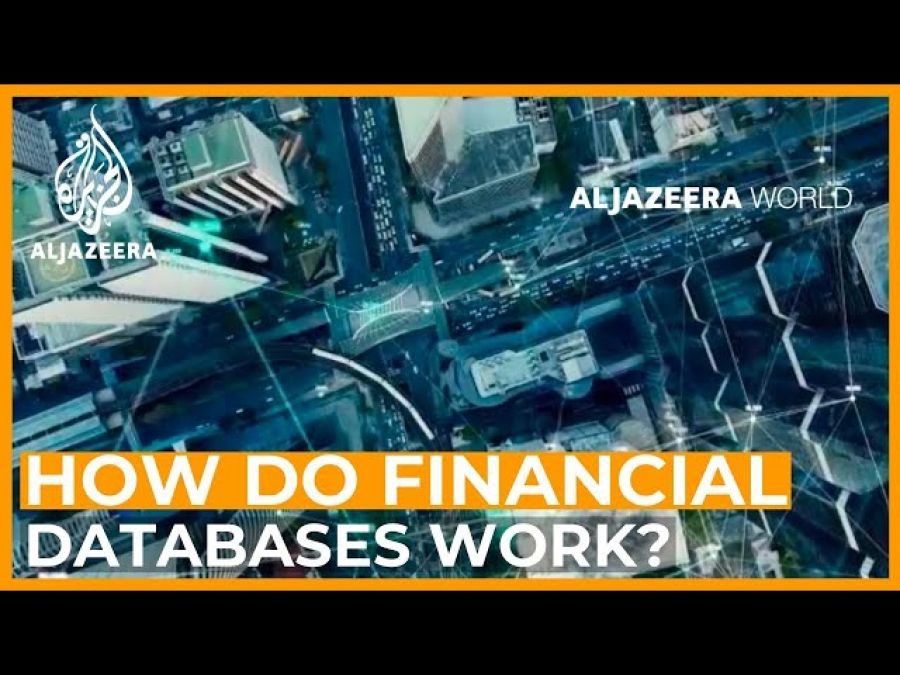

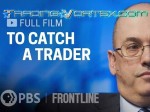
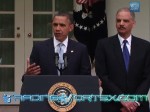
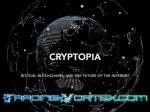

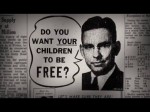
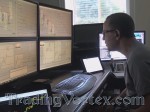
 TradingVortex.com® 2019 © All Rights Reserved.
TradingVortex.com® 2019 © All Rights Reserved.